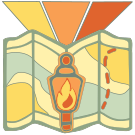Special Composition: Difference between revisions
no edit summary
imported>Jacob Robertson No edit summary |
imported>Jacob Robertson No edit summary |
||
| Line 11: | Line 11: | ||
*** individual parts - Notice they are discrete and autonomous in their own way | *** individual parts - Notice they are discrete and autonomous in their own way | ||
*** two or more individual parts - How do they relate and compare and contrast; how do they work together; what connects them and separates them | *** two or more individual parts - How do they relate and compare and contrast; how do they work together; what connects them and separates them | ||
*** similarities and differences between | *** similarities and differences between the following, noting how a system is composed and connected to other systems | ||
**** specialized systems | **** specialized systems (cars driving in one direction together) | ||
**** parallel systems | **** parallel systems (two lanes of cars) | ||
**** | **** opposing systems (two directions of traffic) | ||
**** "ecology" - many systems that are loosely related (light poles, sidewalks and streets) | |||
=== Driving === | === Driving === | ||
| Line 21: | Line 22: | ||
* Notice other Systems and combinations of Systems, such as | * Notice other Systems and combinations of Systems, such as | ||
** Sidewalks and the grass next to them | ** Sidewalks and the grass next to them | ||
** Streetlights - alongside the sidewalks, in the grass, lighting the street | |||
** Telephone poles - similar to the streetlights, but not the same at all | |||
[[Category:Exercises]] | [[Category:Exercises]] | ||
